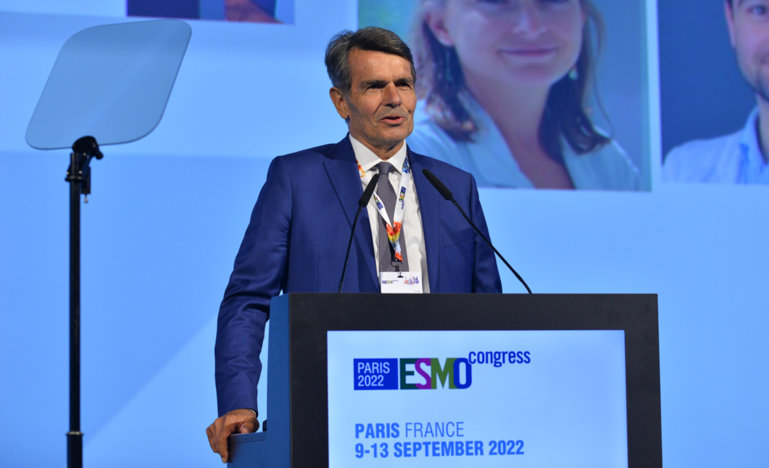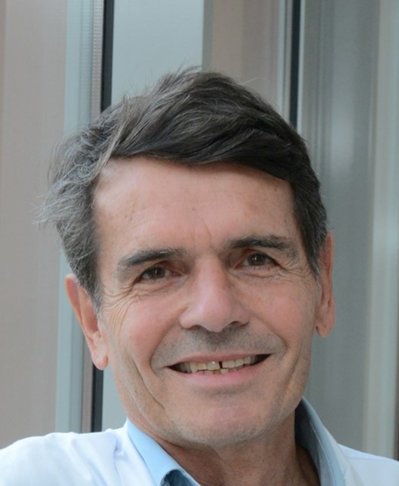Up to 90% of patients will die from metastatic disease and the search for biomarkers lags behind other tumour types, says ESMO Lifetime Achievement Award 2022 winner Prof. Bernard Escudier
Prof. Bernard Escudier from Institut Gustave Roussy, Villejuif, France, recipient of the ESMO Lifetime Achievement Award 2022, reflects on his career in drug development for renal cancer and highlights the revolution in renal cancer treatment that has been achieved.
Since you first began practising, how has the management of renal cancers changed?
Thirty years ago, renal cancer was an unpopular field for oncologists due to the lack of effective treatment options. At that time, prognosis was extremely poor, with most patients dying of the disease within a year. Since then, the renal cancer community has grown substantially and we have seen tremendous improvements in patient outcomes, with median survival increasing to more than 4 years. This transformation has been driven by the development of therapies targeting vascular endothelial growth factor (VEGF) and programmed death-ligand 1 (PD-L1). These two pathways were first described in renal cancer in the early 2000s and have since been implicated in the development of multiple types of cancer. Renal cancer is an excellent model for studying the relationship between the immune system and cancer and we have evidence of this in cases where spontaneous remission of the metastatic disease has occurred after removal of the primary tumour. Over the years, we have also increased our understanding of the indolent nature of some renal cancers, and we now know that not all patients require immediate treatment.
How have you contributed to this evolution?
Over the past three decades, I have had the privilege of being at the forefront of research into novel therapies for renal cancer. During this time, I have been a principal investigator for many phase III trials, including studies of bevacizumab (Lancet. 2007 Dec 22;370(9605):2103-11), sorafenib (N Engl J Med. 2007 Jan 11;356(2):125-34), and nivolumab plus ipilimumab (N Engl J Med. 2018 Apr 5;378(14):1277-1290). Together with my colleagues, we were able to launch international studies involving both Europe and the USA, and this is something that I am tremendously proud of. I have also been involved in building a very passionate group of experts in renal cancer. Beginning with just five or six international specialists, we have now expanded to a global team of more than 50 experts.
What are the key challenges in the management of renal cancer today?
Despite the achievements of the past two decades, we are still in a position where up to 90% of patients diagnosed with renal cancer will ultimately die from metastatic disease. Providing a cure for these patients is vital and to do this I believe we will need to target a third oncogenic pathway in addition to VEGF and PD-L1. We also need to improve treatment options for patients with less common types of renal cancer. For these patients, research is required to understand the underlying tumour pathology and to identify suitable treatment targets. We also currently lack good biomarkers to determine prognosis and predict treatment response in renal cancer. In this respect, our knowledge lags behind other solid tumours, such as lung or breast cancer, which have fairly well-defined biomarkers. This will be an important focus of our research in the coming years.
Don't miss:
Escudier B. Renal Cancer: Model for Oncology Training. ESMO Congress 2022
ESMO Lifetime Achievement Award Lecture, 09.09.2022, h. 12:00 – 13:45, Paris Auditorium







